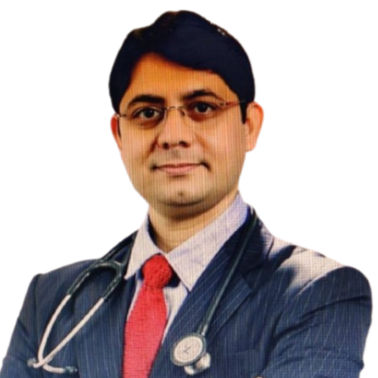Treadmill Test: Purpose And Procedure Explained
Learn about the purpose and procedure of the treadmill test (TMT), a non-invasive cardiac exam used to assess heart health and detect signs of coronary artery disease through controlled physical activity.


Treadmill Test: Purpose And Procedure Explained
Introduction
If your doctor has recommended a treadmill test, you might have questions about why it’s needed and what to expect. This simple, non-invasive test helps assess how well your heart functions during physical activity. In this article, we’ll explain its purpose, how it’s done, and what the results mean—so you can feel more confident and prepared.
What Is a Treadmill Test?
A treadmill test, also known as an exercise stress test, checks how your heart responds to physical exertion. Since some heart problems only appear when the heart is working hard, this test helps doctors detect issues that may not be noticeable at rest.
Why Is It Done?
Your doctor may recommend a treadmill test for several reasons:
1. Check for Heart Disease: It helps diagnose coronary artery disease (blocked heart arteries).
2. Evaluate Heart Function: If you have symptoms like chest pain, shortness of breath, or dizziness during exercise, this test can determine if your heart is the cause.
3. Assess Heart Health After Treatment: If you’ve had a heart attack, angioplasty, or bypass surgery, the test checks how well your heart is recovering.
4. Determine Safe Exercise Levels: It helps set safe exercise limits for people starting a new fitness routine or recovering from heart issues.
To Know If You Should Get It Consult Top Specialists
How to Prepare for the Test?
To ensure accurate results, follow these simple steps before your test:
- Avoid heavy meals, caffeine, or smoking 2-3 hours before the test.
- Wear comfortable clothes and shoes suitable for walking or light jogging.
- Inform your doctor about any medications you take, as some may need to be paused.
- Mention any health conditions like asthma or joint problems that may affect your ability to walk.
What Happens During the Test?
The procedure is straightforward and usually takes about 30-45 minutes. Here’s what to expect:
1. Electrode Placement: Small sticky patches (electrodes) are placed on your chest to monitor your heart’s electrical activity (ECG).
2. Baseline Readings: Your blood pressure and heart rate are checked while you’re at rest.
3. Walking on the Treadmill: You’ll start walking slowly, and the speed/incline will gradually increase to make your heart work harder.
4. Monitoring Symptoms: The medical team watches for any abnormal heart rhythms, chest pain, or dizziness.
5. Cool-Down Period: After stopping, your heart rate and blood pressure are monitored as they return to normal.
Is It Safe?
Yes, the test is generally safe and performed under medical supervision. In rare cases, some people may experience:
- Chest pain
- Dizziness or fainting
- Irregular heartbeats
If you feel uncomfortable at any point, the test can be stopped immediately.
Understanding Your Results
After the test, your doctor will analyse:
- Heart Rate & Blood Pressure Response: How well your heart handles stress.
- ECG Changes: Signs of reduced blood flow to the heart.
- Symptoms During Exercise: Chest pain or breathlessness may indicate a problem.
Possible Outcomes:
- Normal: No signs of heart issues; your heart handles exercise well.
- Abnormal: May suggest blocked arteries or other heart problems, requiring further tests like an angiogram.
Get Test Here
Tips for a Healthy Heart
Whether your test results are normal or not, maintaining heart health is crucial. Here are some lifestyle tips:
- Exercise Regularly: Aim for 30 minutes of moderate activity (walking, cycling) most days.
- Eat a Heart-Healthy Diet: Include fruits, vegetables, whole grains, and lean proteins. Avoid excess salt, sugar, and fried foods.
- Quit Smoking & Limit Alcohol: Both can harm your heart over time.
- Manage Stress: Practice relaxation techniques like deep breathing or yoga.
- Regular Check-ups: Monitor blood pressure, cholesterol, and diabetes if at risk.
When to See a Doctor?
If you experience any of the following, consult a cardiologist:
- Chest pain or tightness
- Severe shortness of breath
- Unexplained fatigue or dizziness
Book a Treadmill Test with Apollo 24|7
If your doctor has advised a treadmill test, you can easily schedule one through Apollo 24|7. Their expert cardiologists and advanced facilities ensure a safe and accurate assessment of your heart health.
Conclusion
A treadmill test is a simple yet effective way to evaluate your heart’s health. By understanding its purpose and procedure, you can approach it with confidence. Remember, taking care of your heart today ensures a healthier tomorrow!
Consult Top Heart Specialists
Consult Top Heart Specialists

Dr. S B Bhattacharyya
Cardiologist
22 Years • MBBS, MD(General Medicine),DM (Cardiology)
Kolkata
Gariaheart Clinic, Kolkata
Dr. Jayarajah Mariappan
Cardiologist
45 Years • MBBS, MD(GEN MEDICINE), DM(CARDIOLOGY)
Chennai
Sooriya Hospital, Chennai

Dr. Mangesh Danej
Cardiologist
8 Years • MBBS, MD (General Medicine), DNB (Cardiology)
Pune
Dr Danej clinic, Pune
(375+ Patients)

Dr. M Sudhakar Rao
Cardiologist
8 Years • MBBS, MD General Medicine, DM Cardiology
Bengaluru
UMC, Kormangla, Bengaluru

Dr Yogendra Singh Rajput
Cardiologist
16 Years • MBBS, MD (General Madicine), DM (Cardiology)
Gurugram
Svasthya Child & Cardiac Care, Gurugram
To Know If You Should Get It Consult Top Specialists

Dr. S B Bhattacharyya
Cardiologist
22 Years • MBBS, MD(General Medicine),DM (Cardiology)
Kolkata
Gariaheart Clinic, Kolkata
Dr. Jayarajah Mariappan
Cardiologist
45 Years • MBBS, MD(GEN MEDICINE), DM(CARDIOLOGY)
Chennai
Sooriya Hospital, Chennai

Dr. Mangesh Danej
Cardiologist
8 Years • MBBS, MD (General Medicine), DNB (Cardiology)
Pune
Dr Danej clinic, Pune
(375+ Patients)

Dr. M Sudhakar Rao
Cardiologist
8 Years • MBBS, MD General Medicine, DM Cardiology
Bengaluru
UMC, Kormangla, Bengaluru

Dr Yogendra Singh Rajput
Cardiologist
16 Years • MBBS, MD (General Madicine), DM (Cardiology)
Gurugram
Svasthya Child & Cardiac Care, Gurugram
